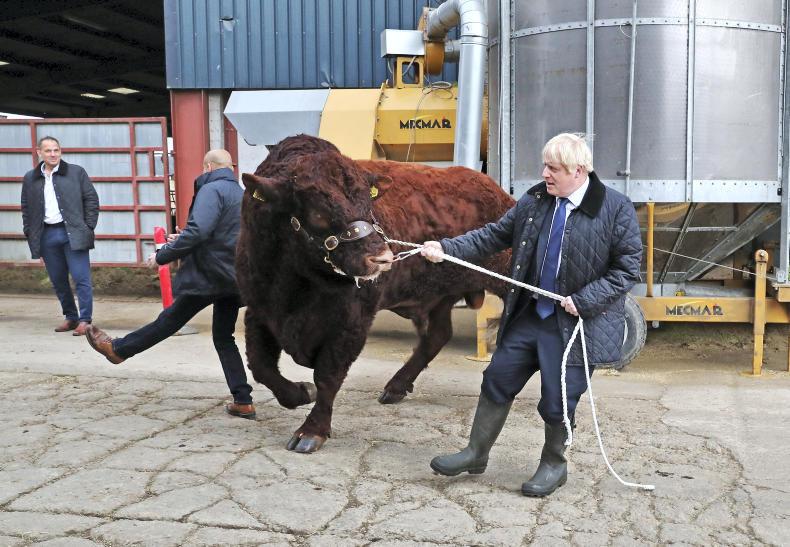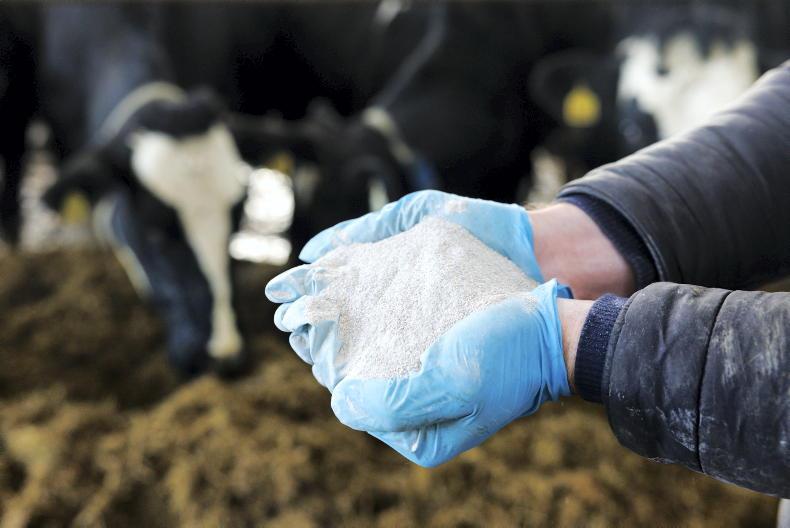With the UK departing from the EU on Friday last, there may have been an expectation that Brexit would disappear from public view for a period of time. However, with both Michel Barnier and Boris Johnson setting out their respective positions for trade negotiations on Monday morning, it is clear that much talk remains before any deal is concluded.
Based on their position statements, the possibility that they won’t be able to conclude any meaningful deal is very real and will be a concern to farmers, who remain at risk from Brexit.
Political declaration
The crunch issue in trade talks will be how much the UK will depart from EU standards and single market principles. Foremost among these is maintaining a level playing field, as defined in section 77 of the political declaration that was part of the withdrawal agreement. This specifically states that given the “geographic proximity and economic interdependence, the future relationship must ensure open and fair competition, encompassing robust commitments to ensure a level playing field.” The 20-page document goes on to say both the EU and UK should uphold the high common standards in areas like state aid and competition.
Of course, the political declaration is no more than that, an overall outline of a direction of travel that would frame more detailed negotiation. Unlike the withdrawal agreement itself and the Irish protocol, it has no legal standing. From the respective statements on Monday, it is clear the EU believes this is the framework on which a long term trading relationship will be built, whereas the UK view, as stated by the prime minister, is that they will not be restricted in their global ambitions by adherence to EU rules and standards.
Science, not mumbo jumbo
The UK prime minister gave the first indication that he may be open to accepting US standards in food production. He attacked US critics and stated in a speech that decisions on trade deals would be governed by science not “mumbo jumbo,” as he described it. This is in conflict with the EU’s precautionary principle, which dictates its policy on GM and rejection of hormone-treated beef. The EU lost this argument in a ruling from the World Trade Organisation (WTO), which adjudicates on international trade disputes between member states.
Shadow boxing
As always, ahead of major negotiations there is an element of shadow boxing and talking tough, as explained to the Irish Farmers Journal by Sir Jonathan Faull, who headed the EU in negotiations with the UK ahead of the referendum. The difficulty of course is that the stronger the position taken, the more difficult it is to move from it without losing face.
Farmers will be hoping that the creative use of language will enable the UK remain aligned closely enough with the EU that it doesn’t become the “Singapore of Europe.”
Singapore is a small, independent city-state south of Malaysia, which has a completely open economy and a low level of government regulation and expenditure, but which is very successful economically.
Farmer angle
This is the opposite of what Irish, and indeed, UK farmers need, particularly in the beef and sheepmeat sector. Irish farmers need their position and value in the UK maintained, while farmers in Britain need access to EU continental markets for their sheepmeat. Any move by the UK towards a completely open economy will devalue that market for farmers, while the EU is likely to be closed off to UK sheepmeat exports by tariffs.
Aside from the need to have the UK prioritise the EU as a future trading partner, there are plenty of reasons for wider industry to want the same, as they are each other’s main trading partners.
Both the UK and EU are big enough economies in their own right to exist independently of one another, but that would come with at least a short-term cost, which would impact more than just farmers.










SHARING OPTIONS